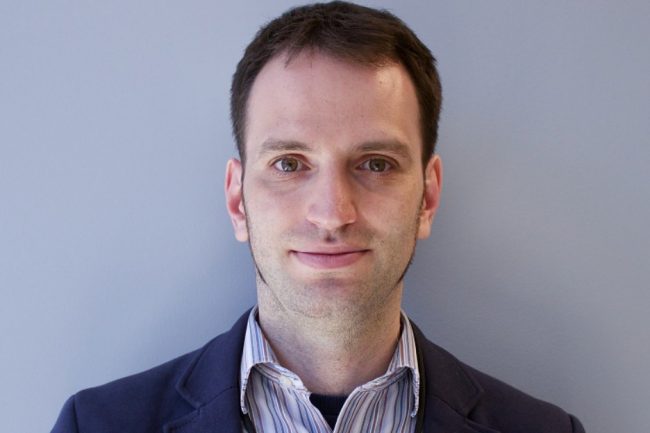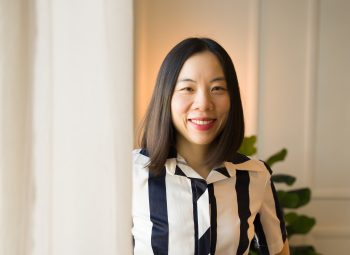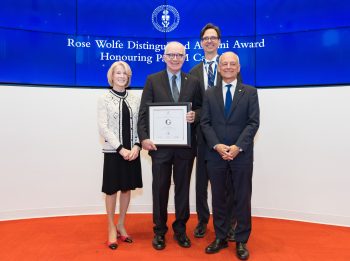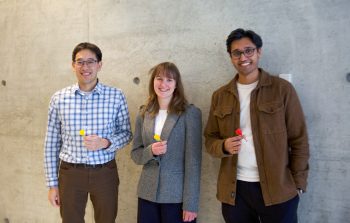Professor Michael Guerzhoy recently joined U of T’s Division of Engineering Science (EngSci) and the Department of Mechanical & Industrial Engineering (MIE).
Guerzhoy is an expert in machine learning and statistics whose research focuses on applications in healthcare, computer vision, and data science. He has taught computer science, data science, and machine learning in U of T’s Departments of Computer Science and Statistical Sciences. Most recently, he was an instructor at Princeton University’s Center for Statistics and Machine Learning.
Guerzhoy is an Affiliate Scientist at the Li Ka Shing Knowledge Institute at St. Michael’s Hospital in Toronto. He previously worked on computer vision and machine learning at Epson Canada and the French National Institute for Research in Digital Science and Technology (Inria) in Grenoble, France.
Writer Christina Heidorn sat down with Professor Guerzhoy to learn more about his research, goals, and why he’s excited about teaching undergraduate students.
Why did you choose to come to U of T Engineering to teach in the EngSci program?
Simply put, a classroom full of EngSci students is my favourite place to be. Nowhere else have I seen so much enthusiasm for learning, so much willingness to work hard, but also such a strong sense of community and, yes, a sense of fun.
What do you see as key ingredients for effective engineering education?
When I’m thinking about teaching a course — a new one or an old favourite — I first of all consider the kinds of things that students will learn to do in the course. I design my lectures around the course assignments; I strongly believe that most learning happens when students are actually doing something rather than just listening to a lecture.
One of my favourite things about teaching is designing assignments and sharing them with others — assignments I designed for EngSci classes are used in universities around the world. I also try hard to use lectures to give students a sense of what’s important in the discipline I’m teaching intellectually. Students in the first-year programming course will hear about how people like Ada Lovelace, Charles Babbage, Alan Turing, Kurt Goedel, and John von Neumann invented modern computing, and see how new ideas create new technology.
An engineer is not simply someone who can hack together a solution to a problem, though that’s definitely part of being an engineer! An engineer thinks about design systematically and thinks about how the technology they create will be used. I try to model those processes in my teaching.
What are your goals in the next few years?
I have one modest goal: make ESC180 and ESC190 (EngSci’s Year 1 programming courses) the best introductory programming sequence in the world. I think I have the right audience for that. I also hope to incorporate more data science and data analysis into the first and second year of the EngSci curriculum, and to develop an advanced data science elective.
In terms of research, I have a couple of projects I’m particularly excited about and am working on with some of my students. One is using Generative Adversarial Networks to check the quality of statistical models. Another is better understanding Double Descent, an exciting and somewhat mysterious empirical observation about how models such as neural networks are trained. I’m also exploring ways to run “virtual” clinical trials using Recurrent Neural Networks, and am working on using analysis of large bodies of text to better understand how mental illnesses influence writing style.
Any advice you’d like to share with the incoming class of 2T4?
Think big and stay curious. Figure out what you want to do and learn and go for it. It’s easy to get bogged down in problem sets and midterms and lose sight of the big picture — you are here to learn, to harness the mysteries of the universe in order to make people’s lives better, and to expand your mind.
At the same time, any skill only comes with practice. This is especially important in courses like computer programming. Learning to program is like learning an instrument or learning to ride a bike —you can’t do it without practice.
What is one “fun fact” about you?
I like making music. Sometimes I sing about grading . Catch me at the next EngSci Nocture talent show!



